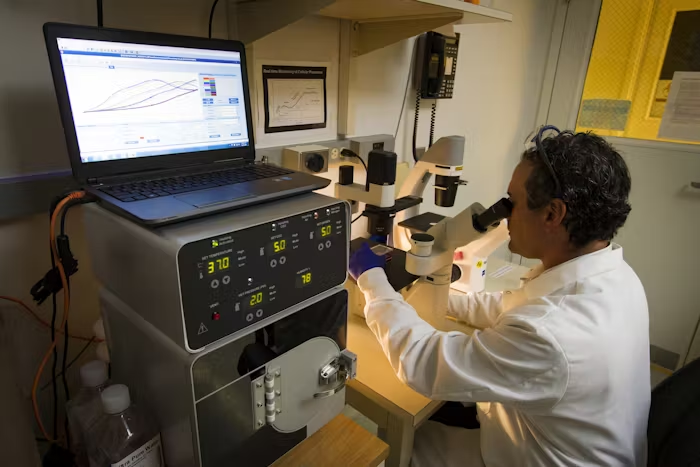In today’s interconnected world, data science plays a pivotal role in shaping how we live, work, and interact. From the apps we use to the decisions we make, data science has seamlessly woven itself into the fabric of our everyday life, fostering growth and enabling success across various domains.
This article explores how data science influences our daily activities, the ways it drives innovation, and its broader implications for society. By understanding the profound impact of data science, we can better appreciate its transformative potential in fostering a smarter, more efficient world.
What is Data Science?
Data science is the practice of extracting meaningful insights from structured and unstructured data using techniques from statistics, computer science, and machine learning. At its core, data science combines:
- Data Analysis: Interpreting patterns and trends in data.
- Predictive Modeling: Forecasting future outcomes based on historical data.
- Machine Learning Algorithms: Automating tasks by enabling systems to learn from data.
These elements work together to solve real-world problems and improve decision-making processes.

How Data Science Touches Everyday Life
Data science impacts almost every aspect of our lives, often in ways we don’t immediately notice. Let’s examine its influence across different facets of daily living:
1. Personalized Experiences in Entertainment
Streaming Services
Platforms like Netflix, Spotify, and YouTube use data science to personalize user experiences. By analyzing viewing or listening habits, they recommend content tailored to individual preferences.
How It Works
- Algorithms analyze watch history, genres, and user ratings.
- Predictive models suggest movies, songs, or videos users are likely to enjoy.
Impact on Everyday Life
This personalization saves time, enhances satisfaction, and keeps users engaged.
2. Smarter Shopping
E-Commerce Platforms
Online retailers like Amazon and eBay leverage data science to optimize shopping experiences.
- Product Recommendations: Suggesting items based on past purchases.
- Dynamic Pricing: Adjusting prices based on demand and competition.
In Physical Stores
Data science is also used to manage inventory, track customer preferences, and optimize store layouts.
Real-Life Example
Have you ever noticed how your grocery store loyalty app predicts what you need before you think of it? That’s data science at work!
3. Transforming Transportation
Navigation and Ride-Sharing
Apps like Google Maps and Uber rely heavily on data science to provide real-time route optimization and estimated arrival times.
Public Transportation
Cities use data science to analyze commuter patterns, reduce congestion, and enhance public transit systems.
Impact
Data-driven transportation improves convenience, saves time, and reduces environmental impact.
4. Enhancing Health and Wellness
Wearable Technology
Fitness trackers like Fitbit and Apple Watch monitor health metrics, such as heart rate and sleep patterns, using data science.
Healthcare Systems
Data science supports diagnostics, treatment plans, and predictive healthcare by analyzing patient histories and medical research.
Mental Health Support
AI-powered chatbots and mental health apps provide real-time assistance, utilizing data science to understand user behavior and needs.
5. Improving Education
Adaptive Learning Platforms
Online education tools like Khan Academy and Coursera use data science to customize learning experiences.
- Algorithms identify areas where students struggle and adjust content accordingly.
Administrative Insights
Educational institutions use data science to predict enrollment trends, optimize resources, and enhance student performance.
6. Driving Workplace Efficiency
Human Resources
Data science streamlines recruitment by analyzing resumes, predicting job fit, and reducing bias.
Business Operations
Organizations use data-driven insights to make strategic decisions, manage supply chains, and forecast market trends.
Impact on Growth and Success
By leveraging data science, businesses enhance productivity, increase profitability, and achieve sustained growth.
7. Revolutionizing Finance
Fraud Detection
Banks and financial institutions use data science to identify suspicious activities and protect customers.
Personal Finance Management
Apps like Mint and YNAB analyze spending habits and suggest budget optimizations.
Stock Market Insights
Algorithmic trading, powered by data science, predicts market movements and maximizes returns.
8. Supporting Environmental Sustainability
Energy Management
Smart grids and renewable energy systems use data science to optimize energy usage and reduce waste.
Climate Change Monitoring
Data science analyzes global weather patterns, tracks emissions, and models climate scenarios to support sustainable policies.
The Science Behind the Magic: How Data Science Works
1. Data Collection
The process begins with gathering data from various sources, such as sensors, websites, and user interactions.
2. Data Cleaning
Raw data is cleaned to remove inconsistencies, inaccuracies, and missing values.
3. Data Analysis
Analysts explore the data to identify patterns, trends, and correlations.
4. Model Building
Predictive models are created using machine learning algorithms to forecast outcomes or automate processes.
5. Visualization and Communication
Insights are presented through dashboards, charts, and reports to facilitate decision-making.
The Growth of Data Science in Society
The influence of data science is expanding across industries, driving growth and creating new opportunities:
1. Emerging Careers
Data science has given rise to high-demand roles like data analysts, machine learning engineers, and AI specialists.
2. Innovation in Technology
From autonomous vehicles to voice assistants, data science fuels technological breakthroughs that shape the future.
3. Social Impact
Nonprofits and governments use data science to tackle issues like poverty, disease outbreaks, and disaster relief.
Challenges and Ethical Considerations
While data science brings immense benefits, it also raises challenges:
1. Privacy Concerns
The collection and analysis of personal data can lead to breaches of privacy.
2. Algorithmic Bias
If not carefully designed, algorithms can perpetuate bias and inequality.
3. Overreliance on Data
Blindly trusting data-driven decisions without context can lead to unintended consequences.
Tips for Success in Data Science
If you’re inspired by the power of data science and want to explore it as a career or skill, consider the following:
1. Learn the Fundamentals
Build a strong foundation in programming (Python, R) and statistics.
2. Practice on Real Data
Participate in data science competitions or analyze open datasets to gain hands-on experience.
3. Stay Curious
The field is ever-evolving, so keep learning about new tools, algorithms, and best practices.
Data science has become an integral part of our everyday life, influencing everything from the way we shop to the way we work. Its ability to drive growth and enable success is unparalleled, making it a cornerstone of modern innovation.
As data science continues to evolve, its potential to create a smarter, more efficient, and more equitable world is limitless. By embracing the opportunities it offers and addressing its challenges responsibly, we can harness its power to shape a brighter future for all.














